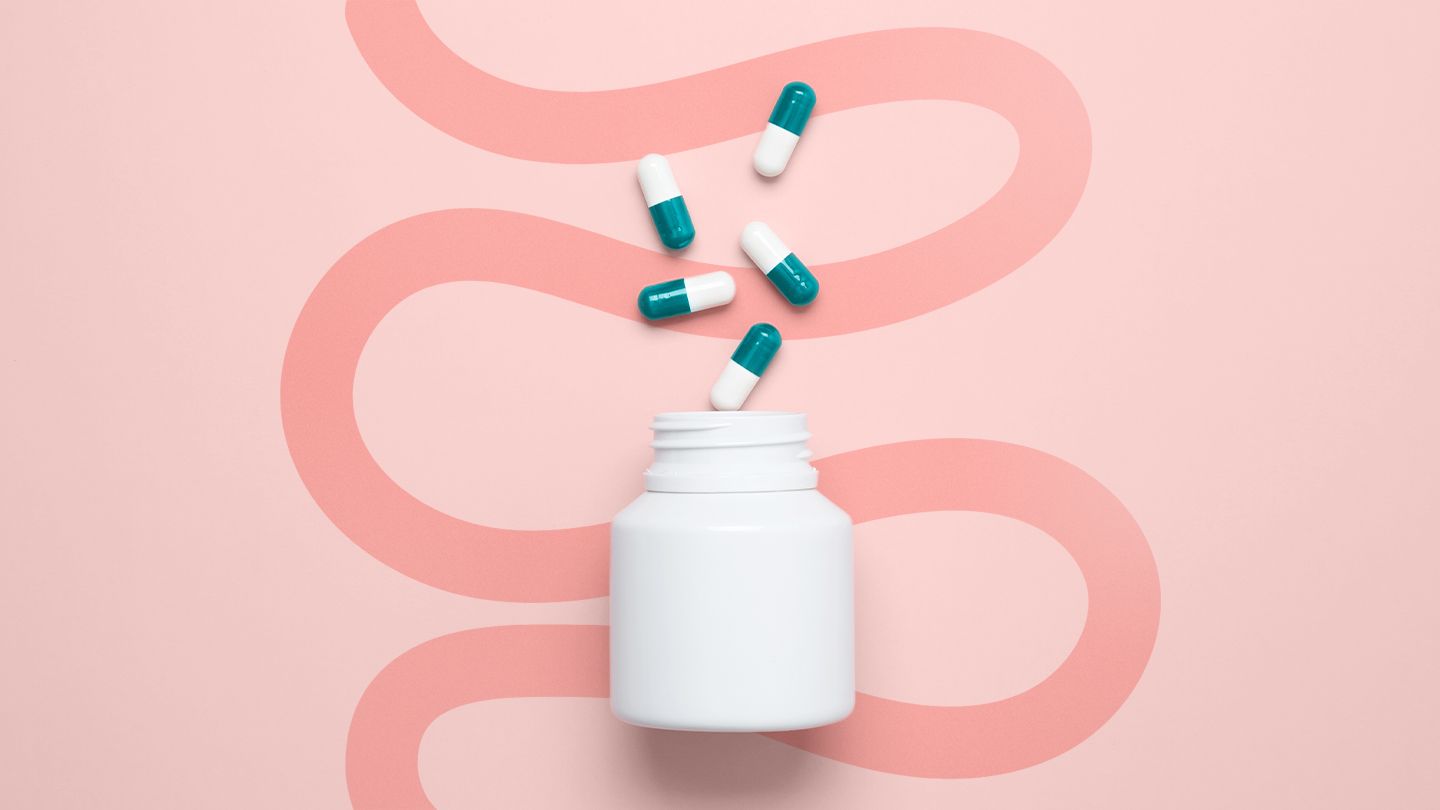Most of us will need to take an antibiotic at one point or another. But if you have ulcerative colitis , you might have questions about when you’ll need the meds — and how they might affect you. Antibiotics aren’t used to treat ulcerative colitis (UC) directly.e60dc2a1-f33c-4a05-9b50-8e3e8e597629f39a30eb-10bc-433f-874f-0295d57b9220 “Antibiotics help treat infections in patients with ulcerative colitis that arise as a complication of UC,” says Supriya Rao, MD , a gastroenterologist with Tufts Medicine in North Chelmsford, Massachusetts. If you’re wondering when your doctor might pull out their prescription pad, read on. Here are the reasons you might need to take antibiotics when you have UC, plus how to manage the potential side effects .
Reasons You Might Need Antibiotics for UC Reasons You Might Need Antibiotics When you have UC, there are a few scenarios where you might need the bacteria-fighting meds. These include: Infections: Having UC can increase your risk for Clostridium difficile ( C. diff ) , a severe bacterial infection that causes abdominal pain, bloody stools, diarrhea, and fever. It can also make you more prone to parasitic infections such as Giardia lamblia . Both of these infections need to be treated with antibiotics.e60dc2a1-f33c-4a05-9b50-8e3e8e5976298b375cf9-ee34-455c-9c5f-171292a6bd95 Surgery: Your care team might prescribe antibiotics before or after surgery to reduce the risk of infection.e60dc2a1-f33c-4a05-9b50-8e3e8e597629703fb35f-16d0-4c31-9bbe-498bdbe84734 J-pouch inflammation: Around 8 in 10 people with UC who have a J-pouch (an internal pouch that collects stool after a person’s colon and rectum have been removed) develop pouchitis, where the pouch becomes inflamed. The problem is usually treated with antibiotics.e60dc2a1-f33c-4a05-9b50-8e3e8e59762988bde76b-1349-43f1-8822-c3d5c77827e7 Non-gastrointestinal (GI) infection: Certain UC meds can make you more prone to bacterial infections outside of your digestive system (such as pneumonia or strep throat). In that case, your doctor will prescribe an antibiotic to help you get better.e60dc2a1-f33c-4a05-9b50-8e3e8e59762914c3101c-a8c5-423f-87c6-df59555a6e58
What to Know About Taking Antibiotics When You Have UC What to Know About Taking Antibiotics Antibiotics are a must for treating certain bacterial infections. But they also come with risks and can cause side effects, including: New or worse GI symptoms: Antibiotics can sometimes cause diarrhea, loss of appetite, nausea, and vomiting.e60dc2a1-f33c-4a05-9b50-8e3e8e597629ea241414-d93e-45c9-aa9c-9b0ddd95cd1c These can happen to anyone, but, “People with UC may be more sensitive because of baseline gut inflammation, altered gut motility, and dysbiosis,” especially if you’re in the midst of a flare, says Sanket Patel, DO , Director of the Crohn’s & Colitis Center at Virtua Health in Moorestown, New Jersey. Severe GI infections: Taking antibiotics can increase your risk of C. diff infection (even though antibiotics are also used to treat C. diff ). That’s because antibiotics can wipe out harmful and good bacteria in your gut, which can make it harder to keep infection-causing bacteria in check.e60dc2a1-f33c-4a05-9b50-8e3e8e597629ea241414-d93e-45c9-aa9c-9b0ddd95cd1c UC flares: Antibiotic use can potentially cause a UC flare , research shows.e60dc2a1-f33c-4a05-9b50-8e3e8e597629555a2116-a5fe-4eee-9dd1-dc2bd8411941 “Antibiotics can disrupt the gut microbiome, which is already imbalanced in UC patients, leading to a higher risk of flares,” Patel says. Medication interactions: Antibiotics can interact with some meds you might already be taking, including antacids, beta-blockers, NSAID pain relievers, and warfarin. Make sure your provider knows about all of the medications you’re currently on before starting an antibiotic.e60dc2a1-f33c-4a05-9b50-8e3e8e5976296af6bac9-1874-49c8-9ab9-49315e9991be It’s important to be aware of the potential risks and side effects of antibiotics. But these aren’t reasons to avoid the meds if your doctor recommends them. “You should avoid unnecessary antibiotics, for sure. But if you have a bacterial infection, you should definitely take the antibiotics, especially since UC can increase the risk for infections becoming severe,” Dr. Rao says.
Tips for Taking Antibiotics if You Have UC Tips for Taking Antibiotics If your doctor is recommending antibiotics, there are some things you can do to reduce your risk of side effects and make sure the meds do their job. Consider probiotics. Some research shows that probiotic supplements and probiotic-rich foods, such as yogurt or kefir, can restore healthy gut flora when you’re taking antibiotics.e60dc2a1-f33c-4a05-9b50-8e3e8e59762970d6935f-201b-48d9-b051-6ba71e41cb94 Certain probiotic strains, such as Saccharomyces boulardii , may also help reduce the risk of C. diff infections. Check with your doctor before taking a supplement.e60dc2a1-f33c-4a05-9b50-8e3e8e5976292cd432cb-aba2-44fb-a975-294676be02d7 “It’s important to consider the potential risks and benefits carefully with your doctor, especially with severe illnesses or immunosuppression,” says Patel. Eat fiber-rich foods, if you can. Fiber-rich foods such as beans, fruits, whole grains, and vegetables contain prebiotics, which feed the good bacteria in your gut and help them thrive.e60dc2a1-f33c-4a05-9b50-8e3e8e597629ecf83170-09e0-439b-af91-e2a9ea5ef73f “If you’re not in a flare, they can help make sure your gut stays healthy,” Rao says. Follow the dosing instructions. Check the instructions on the label before starting meds. Some antibiotics should be taken with food or at certain intervals throughout the day (like every 8 hours).e60dc2a1-f33c-4a05-9b50-8e3e8e597629018429d8-657d-4bb6-b9fb-d1d53f435cca Take all of your antibiotics. You need a full course to completely get rid of your infection. Finish all of your meds, even if you’re feeling better sooner. Let your care team know about side effects. Reach out to your doctor if you start to experience bleeding or diarrhea, Patel recommends. Together, you can decide if and when symptoms need medical attention. The Takeaway Antibiotics are used to treat complications of ulcerative colitis, such as infections. People with ulcerative colitis may be more susceptible to some of the side effects of antibiotics than people without the condition. To lower the risk of side effects, try eating more fiber-rich foods, including those that contain prebiotics.
Read the full article here
Leave a comment




